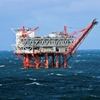
Companies should be doing all they can to provide safe working environments for their employees. Especially in some sectors, like the oil and gas industry, where workers may face a higher risk of injury, businesses need to take extra precaution. Installing a fire and gas detection system is one way to increase safety.
BP has been under fire recently for its safety measures, or lake thereof, on the Deepwater Horizon oil rig that exploded in 2010, causing a massive oil spill and many workers to be injured. According to the Harvard Business Review (HBR), company leaders should take responsibility for ensuring they are providing a safe place for employees to work. This includes CEOs choosing the best safety services and products offered by safety equipment suppliers.
A business leader should be required to establish a thorough process for choosing quality safety equipment, the article stated. By neglecting to do so, companies may not be able to prevent future safety issues.
"Business leaders must establish robust processes not just for qualifying third party vendors, but for making sure that there is integration of those suppliers in a strong safety culture with close company oversight of safety management and processes," the article stated.
BP takes some responsibility for safety failures
In the case of BP, the company has admitted during its trial that it should be held responsible for the Gulf of Mexico oil spill, according to Reuters. They also believe the other companies that were a part of the operation should share the blame.
Some experts say the 2010 oil rig disaster is a good example of how companies need to make sure they have effective and reliable safety equipment in place. BP was under pressure to cut costs, which may have effected how the company implemented proper safety equipment, Bob Bea, co-founder of the Center for Catastrophic Risk Management at the University of California, Berkeley, told Reuters.
"There is ample evidence of intense pressure within the system to save time and money," said Bea. "With stress and pressure come sacrifices to safety."
Bea told Reuters that BP cut the company's costs in the Gulf of Mexico by 22 percent between 2008 and 2009 but also increased oil and gas output by 55 percent, signaling that the company was compromising safety in order to increase profit.
It was also noted during the company's trial on penalties under the Clean Water Act that BP was investing in training programs and set aside budgets to increase process safety leading up to the explosion in 2010, Reuters reported.
As the CEO of a company, it becomes their responsibility to make the choices of putting safety ahead of gaining profits and cutting costs. While the oil and gas production market may be a high risk industry, safety measures can still be implemented in order to prevent the losses recorded as part of the Gulf of Mexico oil spill.
Industrial Safety News brought to you by Safety Systems Technology, Inc., leaders in fire and gas detection systems.